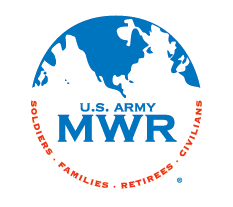
Domestic Abuse Victim Advocacy Program
Standing Against Abuse Together
Victim Advocacy Program
Victims of domestic violence and sexual abuse have round-the-clock access to services, including emergency assistance, information, referrals, and ongoing support in accessing medical, behavioral health, legal, and law enforcement services on and off garrisons. Victim Advocates will discuss the option of restricted and unrestricted reports.
- All Army installations have a 24/7 Family Advocacy Program (FAP) Domestic Abuse Victim Advocacy Hotline, or you can call the National Domestic Violence hotline at 1(800)799-7233. If you are in immediate danger in the United States, call 911 or your local military police. For OCONUS locations, contact your local emergency services.
- The Army’s Domestic Abuse Victim Advocacy Program provides comprehensive assistance and support to victims of domestic abuse, including crisis intervention, risk assessment, safety planning, assistance securing medical treatment, information on legal rights and proceedings, and referrals to military and civilian shelters and other resources available to victims. Child advocacy services are provided to non-offending parent/guardians of children when directed by the FAP or by a judge.
- Domestic Abuse Victim Advocates (DAVAs) are trained professionals who provide non-clinical advocacy services and support to Soldiers and Family members experiencing domestic abuse. DAVAs are on call 24/7 to provide immediate assistance, safety planning, non-judgmental support, and information on available resources. Find your local DAVA.
- Domestic abuse is a pattern of behavior resulting in emotional/psychological harm, economic control, and/or interference with personal liberty. The abuser could be a current or former spouse, someone you share a child with, or a current or former intimate partner you’ve shared a home with. Domestic abuse is a crime. So is violating a protective order.
- Provide crisis intervention and support 24/7/365
- Help file restricted and unrestricted reports
- Talk with you about how safe you are and plan for emergencies
- Give information on temporary financial support and other benefits to victims when the offender is separated from the military
- Coordinate emergency services, including transportation, housing, and food
- Assist in obtaining protective orders
- Accompany you throughout the medical, investigative, and legal processes
- Represent your interests through on-post processes
- Offer information and referral to medical, legal, counseling, and other resources
- Several places you could go if you leave your home
- People who might help you if possible, leave a bag of necessities at their house
- Getting a cell phone
- Opening a bank account/credit card in your name
- How you might leave
- How to take your children with you safely
- Children
- Money
- Keys to car, house, work
- Extra clothes
- Medicine
- Important papers for you and your children
- Birth Certificates
- Social security cards
- School and medical records
- Checkbooks, credit cards
- Driver’s license
- Car registration
- Welfare identification
- Passports, green cards, work permits
- Lease/rental agreement
- Mortgage payment book, unpaid bills
- Insurance papers
- Military Protective Order (MPO)/Civilian Protective Order (CPO), divorce papers, custody papers
- Address book
- Pictures, jewelry, sentimental items
- Items for your children (toys, blankets, etc.)
- Keep a copy of your MPO/CPO at work
- Give a picture of the abuser to security and friends at work
- Tell your supervisors – see if they can make it harder for the abuser to find you
- Don’t go to lunch alone
- Ask a security guard to walk you to your car or to the bus
- If the abuser contacts you at work, save voicemails and e-mails
- Get a cell phone.
- Get a MPO/CPO. Keep a copy with you at all times. Give a copy to the police, your children’s caregivers, schools, and your boss.
- Change the locks.
- Install a security system and outside lights.
- Change your number to be unlisted.
- Use an answering machine/voicemail to screen calls.
- Tell friends and neighbors your abuser no longer lives with you. Ask them to call the police if they see your abuser outside or near your home.
- Tell someone at work what has happened.
- Try not to use the same stores, banks, or businesses that you did when you were with your abuser.
- Find a safe way to speak with your abuser, if necessary.
- Take a self-defense course.
- Go over your safety plan.
Last modified: January 31, 2023 - 8:00 pm UTC



